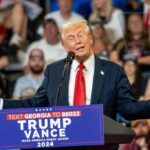Over the last year, the Biden Administration has maintained funding for pandemic relief, distributed vaccinations, supported infrastructure, and emphasized the need to “Build Back Better.”
In 2021 alone, elected officials traded hundreds of millions of dollars on the stock market while at the same time being privy to the discussions and deliberations that have resulted in President Biden’s legislative agenda.
Analyzing the financial disclosures from December 1, 2020, to December 22, 2021, for the Senate and for the house last year, members of Congress purchased and sold over $290 million in stocks (representing more than 3,500 transactions by 105 members of Congress), according to a report by UnusualWhales published on January 10, 2022.
In contrast, just $570,000 in cryptocurrencies were traded during the same time period, which included 25 transactions by six members of Congress, representing a 526-fold decrease in the amount traded compared to equities.

7 Congressional members traded crypto
Some politicians held equities in the industries they had publicly voiced support for, such as Senators who owned cryptocurrencies while drafting legislation.
On August 16, for example, Senator Cynthia Lummis purchased up to $100,000 worth of Bitcoin, according to filings [PDF], when the Senate was busy drafting cryptocurrency regulations. Likewise, Senator Pat Toomey also prepared revisions to those crypto tax rules during that period while he held cryptocurrency.
Congress made its first foray into the realm of cryptocurrencies in 2021, not only by passing legislation to regulate the industry but also by using cryptocurrency in their own financial portfolios.
In total, in 2021, a total of seven members of Congress bought and sold cryptocurrencies, including House Representatives Felix Moore, Marie Newman, Mark Green, and Michael Waltz, while the two Senators were Patrick Toomey and Cynthia Lummis, respectively.
A conflict of interest
In 2021, Congress beat the market the SPDR S&P 500 ETF Trust (NYSEARCA: SPY), significant legislative events (such as the passage of the Infrastructure Bill by the Senate) were often anticipated by politicians trading in the industries impacted, which resulted in millions of dollars in profits for the officials.

After everything is said and done, elected officials find themselves in difficult circumstances when they are permitted to trade in certain stocks and derivatives while simultaneously passing legislation. Their actions expose them to the possibility of apparent conflicts of interest, which might lead the public to doubt their motives.
As a result, many have asked for more steps to be taken in addition to the STOCK Act. These measures include transferring financial assets into blind trusts, restricting trading to broad sector index funds exclusively (rather than individual firm stocks), and prohibiting trading altogether while in office.
Ultimately, over the year, discussions took place in sessions held behind closed doors; meanwhile, the elected officials had been aggressively trading stocks, options, and other financial assets in order to supplement their income.








